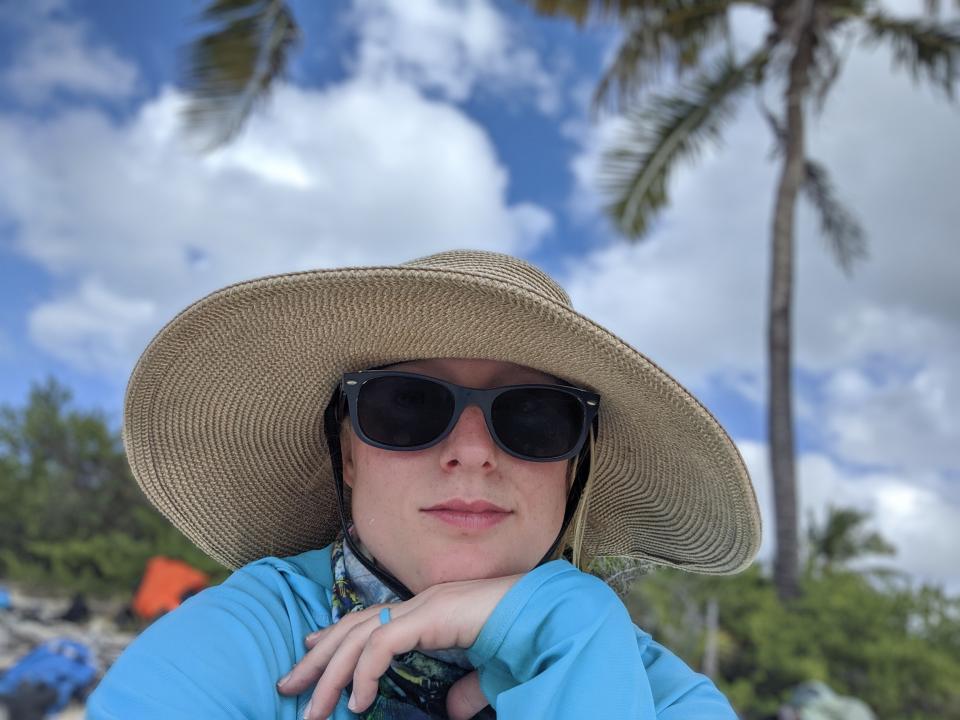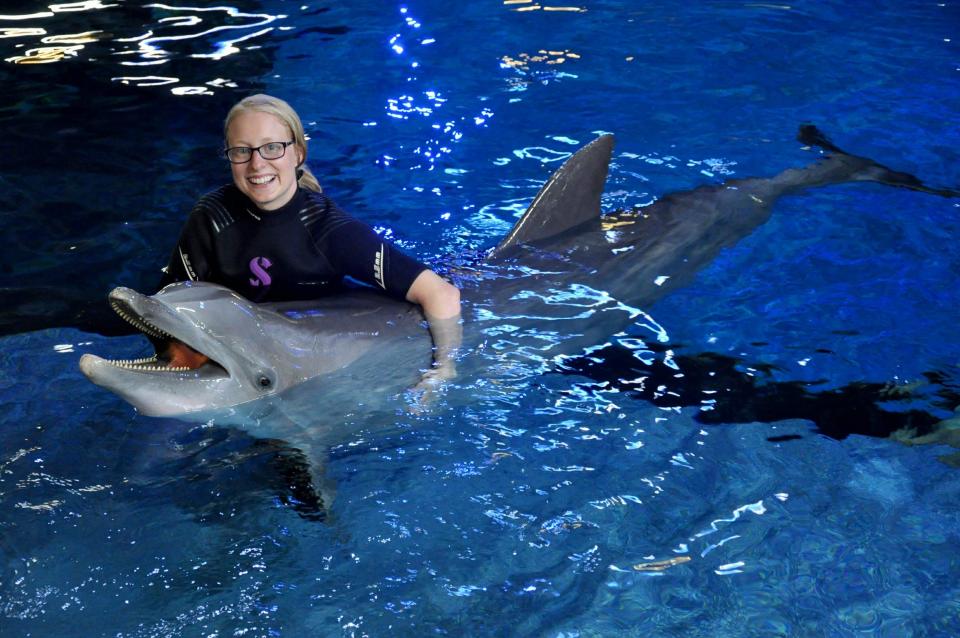
Leah Maurer started doing science research at IMET as a sophomore in high school and spent the better part of the next eleven years learning aquaculture techniques, growing algae, and working in the lab. Throughout this time, she was devoted to the creatures living at IMET, coming in on weekends and holidays and walking through snowstorms to care for them. She graduated in 2017 with her Master’s degree and soon started a job as a researcher at an aquarium.
While she has taken care of many different marine animals, Leah has a particular soft spot for a certain hard-shelled crustacean – the blue crab. As a high schooler, she worked with Odi Zmora on a new breeding program for blue crabs. She gained experience raising larvae and seeing their various stages of development. She continued caring for these and other animals while she completed a degree in environmental science at the University of Maryland, Baltimore County, and then enrolled as a graduate student at IMET in the lab of Dr. Sook Chung.
For her Master’s thesis, Leah studied larval development of blue crabs. The larvae go through up to 8 defined stages. Throughout the years that she spent raising these larvae, Leah noticed that some of them skipped stages and became juveniles faster than others. Through extended research, she was able to verify that larvae did have different patterns of development. She has hypothesized that this would make them more resilient to changing conditions. For example, it might help crabs to stay in their larval stages longer if there isn’t a good place to settle. In their larval form, they would be better able to survive in turbulent, deep water.

Leah is now researching the behavior and health of marine animals in an aquarium setting. Soon after she graduated, Leah began to work as a researcher through the New College of Florida. With a team of scientists, she provides research expertise that helps the aquarium to maintain the health of its animals. On a given day, you could find Leah developing enrichment programs to help dolphins thrive, taking measurements of light and sound in the aquarium to understand how animals are impacted by environmental conditions, or traveling to the Caribbean to check on a long-term project on coral reef health. She said, “My favorite part about this job is the variety. There are so many different animals and you’re constantly learning new things about how the environment affects their behavior. I’m never bored.”
Leah’s training in aquaculture at IMET prepared her well for this position. Many of the skills are transferrable – paying careful attention to the animals’ health and behavior, checking indicators of environmental health, and using the scientific method to answer important questions. The biggest difference is that at the aquarium, there’s always an audience. While she’s collecting data, people will often ask questions about what she’s doing and why. “You’re constantly talking to guests in an aquarium,” she said. “People have all kinds of science backgrounds and you want them to leave the conversation having learned something new.” Outreach events at IMET, like an ask-a-scientist booth and the Open House, prepared her to engage with the public, and it is now a much bigger part of her day.
Leah has found a fulfilling career that brings together scientific research, engagement with the public, and animal care. Her graduate education certainly prepared her well for this position, though when asked if she had any advice for current students, she focused on getting out of the lab. “Go out and try something different. You may work at the lab bench, but you should try something new. I volunteered at a hydroponics facility and learned more about growing plants, and now I have a garden. You can always learn something new and find enjoyment in places you didn’t expect.”